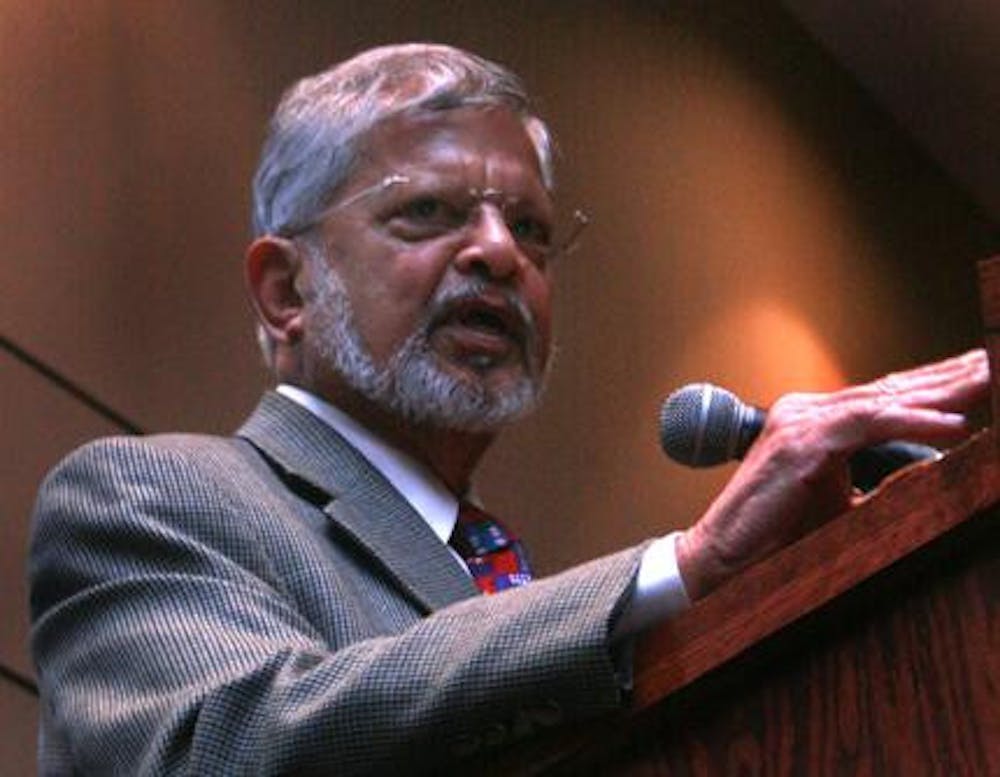Arun Gandhi never got his grandfather's autograph, but what he gained in 18 months with Mohandas "Mahatma" Gandhi changed his life.
Gandhi shared lessons learned from his grandfather with about 350 people in the Reitz Union Grand Ballroom at Monday night's opening ceremony for Kaleidoscope: Asian and Asian American Awareness Month.
The first lesson Gandhi described dealt with anger management.
He recalled being beaten by whites for being too black and then being beaten by blacks for being too white when he was a 10-year-old in apartheid-era South Africa.
It filled with him anger, he said, and he tried to build himself up physically so he could fight back.
When his parents noticed their son's newfound interest in weightlifting, they sent him to live with his grandfather in India.
Gandhi said his grandfather, who protested the British occupation of India through nonviolent means, taught him to keep an anger journal to understand his feelings.
The elder Gandhi also suggested that his fifth grandson practice a daily exercise to gain control of his young mind: He should envision one object that gives him pleasure and try to retain that image in his mind as long as possible.
Gandhi's time with his grandfather also taught him that violence is more than just physical anger. He learned this when he threw away a used pencil on the way home from school.
His grandfather made him search for the pencil in the dark because discarding the pencil was a crime of violence against nature and humanity by wasting natural resources. It also deprived others of those resources.
Violence against humanity connects to the issue of relationships, which Gandhi said is another important aspect of his grandfather's philosophy.
Poor relationships lead to conflicts, which lead to violence, he said.
The important thing is to build good relationships based on respect, understanding, acceptance and appreciation, he said. Gandhi emphasized the relationship between parents and their children.
He recalled the time when he was 16 and given the responsibility of taking the car into the garage as long as he picked up his father from town, which was 18 miles away from home, at 5 p.m.
When he got distracted by a John Wayne movie and picked up his father an hour late, Gandhi lied and said he was tardy because the garage wasn't finished working on the car in time.
Knowing this was a lie, his father insisted on walking the 18 miles so he could take the time to think about what he'd done wrong in raising his son.
If his dad had punished him like parents punish their children today, he doesn't think he would have learned the lesson.
"Every time we punish our children for misbehaving, we are telling them it is right to punish somebody who does something wrong," he said. "This is how violence is taught."
Magel Alcantar, executive director of Kaleidoscope Month, said Gandhi was invited to speak in hopes that his words would help Asian-Americans relate to the Gainesville community.
The event cost ,15,000, Alcantar said. Accent Speaker's Bureau paid ,8,000, and Kaleidoscope Month contributed ,7,000.






